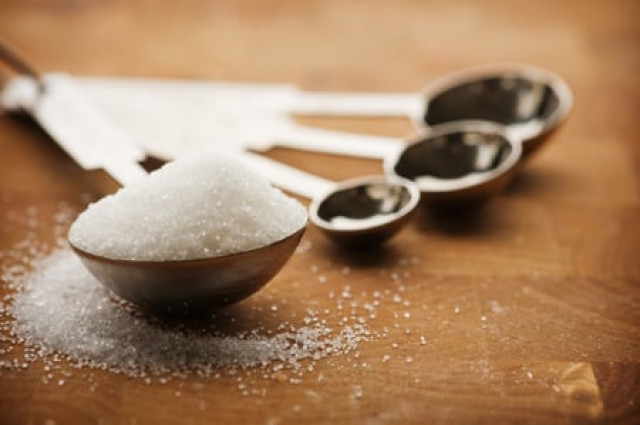Pakistan's sugar fiasco and the way forward
It is not in national interest to damage sugar industry through rash steps

Sugar. PHOTO: REUTERS
The preliminary report has resulted in a reshuffle in the cabinet and sidelining of some senior bureaucrats. The final forensic report expected in a couple of weeks may identify those who profited from this situation and thus more accountability.
Despite being of preliminary nature, the report clearly shows that the decision-making process at the federal as well as provincial levels is precariously flawed and is not evidence-based.
In this case, the sugar mills provided the relevant data regarding sugar production and stocks. The government had no alternative source to check the veracity of the claims, although this is one of the most regulated industries.
The fact that the US Department of Agriculture (USDA) can give an updated position of Pakistan’s sugar stocks every six months, it can easily be done. In this case, USDA’s report of April 24, 2019 showed that Pakistan’s ending stocks for the year were expected to drop to a seven-year low mainly due to decreased production. It also revised down production estimates for the year by 24%.
Had such data been presented to the ECC, it would likely have immediately decided to reverse its earlier decision without causing any severe damage.
Another point noted by the inquiry committee is that six groups control almost 51% of sugar production. They are, therefore, in a position to cartelise and manipulate prices.
In this connection, the committee gave a specific instance of price fixing when all the sugar mills quoted the same rate in response to tenders floated by the Utility Stores Corporation in December 2019 and January 2020.
On the other hand, a recent probe by the Competition Commission of Pakistan (CCP) in October 2019 indicated that there were no signs of collusive activities within the industry. The forensic audit now under way may be able to throw some light on this issue.
Major difference
Like other major industrial sectors in Pakistan, there is no doubt that the sugar industry has survived and flourished due to crony capitalism, being beneficiary of a nexus between it and those in power.
The key difference compared to other recipients of state largesse is that others do not face much scrutiny, as they do not touch the lives of common people. In the case of sugar industry, it is a different story.
First, unlike other industries, this is a highly regulated sector. Starting from permission for establishing a sugar mill, procuring raw material, determining when and how long the crushing season will last, the level of protection from any competition, and when and how much of the commodity can be exported or imported all are determined by the government.
Thus, for any transgressions, the government is considered equally guilty of any misdoings of the sugar industry.
Secondly, sugarcane is generally perceived as a political crop. No matter which government is in power, it includes representatives of sugar producers in key cabinet positions.
The current cabinet is no exception. Thus, there is always a perception that those representing sugar lobbies have trumped the interests of consumers and taxpayers.
There is also an international aspect. According to a USDA report, government interventions are common in most of the 21 countries that account for 80% of the global sugar production. Even the minimum WTO rules to control distortions for agricultural products are not being followed.
India is one of the major violators, and its interventions in various forms are estimated to be worth $1.7 billion per year. Recently, Australia and Brazil filed cases against India at the WTO for violating rules and supporting domestic sugar industry over and above permissible levels.
Data countercheck
Seen in the above context, and the long continuing practice, the grant of some subsidy for exports would not usually be an abnormality if the stock situation and international prices so warranted.
The real problem seems to be the lack of any mechanism to have a countercheck on the data about excess stocks provided by the sugar mills, which were the main proponents of exports and subsidies.
Learning from this debacle, the government should consider a new way forward. It would not be in the national interest to damage the sugar industry through any rash steps, as is demanded by several commentators.
The industry has already made an investment of $3 billion, saves over $2 billion in import substitution, earns around $900 million through export of sugar and sugar byproducts such as ethanol, and provides employment to over one million people.
What is needed is deregulation, greater integration with international markets and modernisation of antiquated regulations.
The writer is the senior fellow at Pakistan Institute of Development Economics and ex-ambassador to WTO
Published in The Express Tribune, April 13th, 2020.
Like Business on Facebook, follow @TribuneBiz on Twitter to stay informed and join in the conversation.



1733130350-0/Untitled-design-(76)1733130350-0-208x130.webp)















COMMENTS
Comments are moderated and generally will be posted if they are on-topic and not abusive.
For more information, please see our Comments FAQ